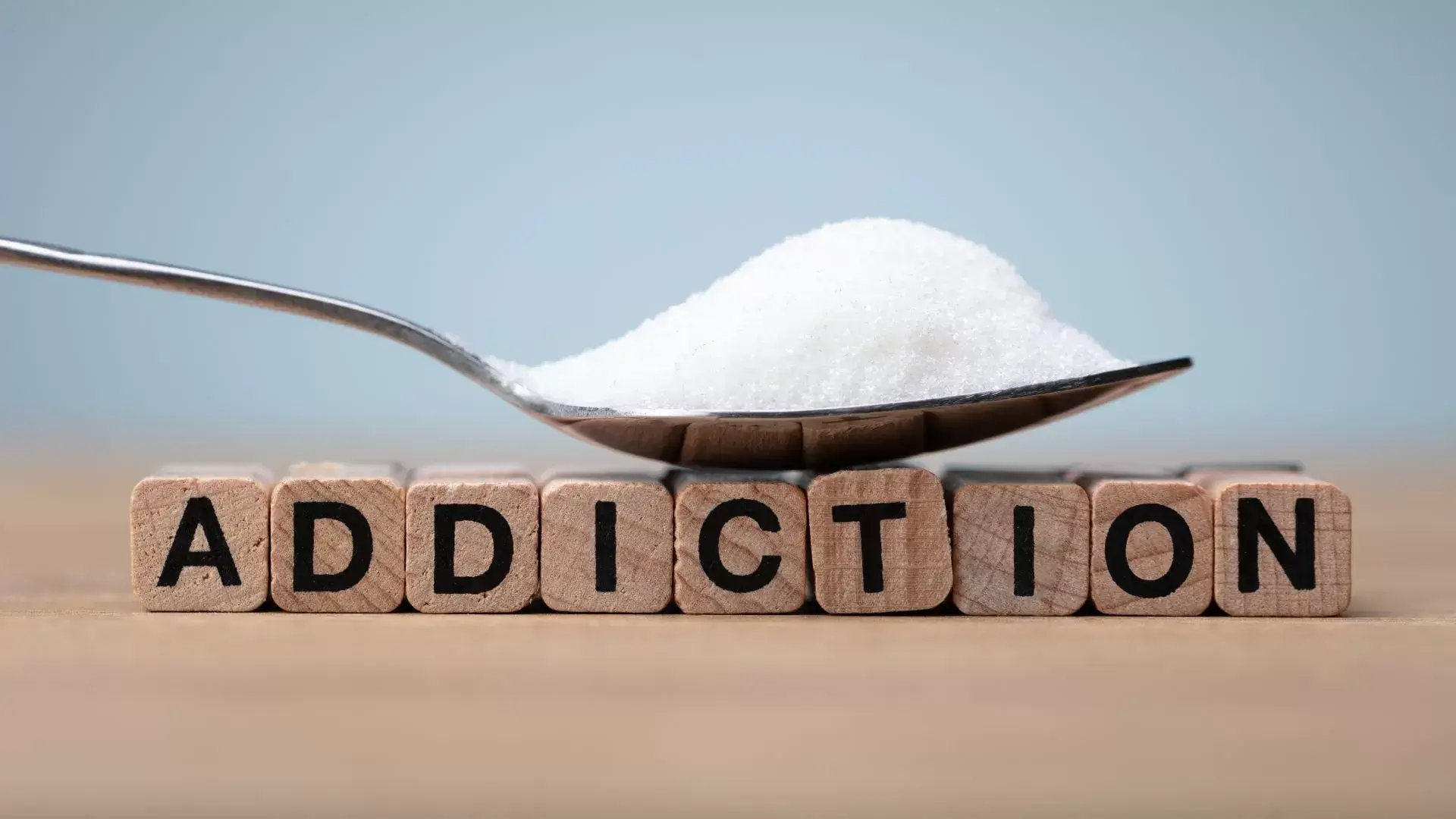Psychotherapy for Addiction
We recognize that psychotherapy for addiction is an essential step toward healing. It helps us explore the emotional and psychological roots of our struggles. Through compassionate support, we learn to address not just substance use but also any co-occurring mental health issues. This tailored approach cultivates resilience and empowers us on our journey to recovery. By integrating various evidence-based techniques, like cognitive-behavioral therapy and mindfulness, we build healthier coping strategies. Together, we can navigate the complex road to sobriety and emotional well-being, discovering how much help is available beyond this brief overview.

About Our Psychotherapy Counseling Services
At Psychotherapy Counsellors, we recognize the profound challenges of addiction, and we’re here to offer compassionate psychotherapy counseling services tailored to support your journey toward recovery. Our approach to addiction treatment is holistic, addressing both the psychological and emotional aspects of substance use disorder. Through specialized addiction therapy, we aim to foster emotional healing in addiction recovery, empowering you to reclaim your life.
We understand that many individuals face the complexities of dual diagnosis, where mental health issues co-occur with substance use. Our team is trained in cognitive behavioral therapy for addiction, equipping us to help you develop effective coping strategies and healthier thought patterns. We believe that every journey is unique, and our addiction support services are designed to meet you where you are.
As we work together, we’ll focus on addiction management techniques that promote lasting recovery. Our commitment is to create a safe environment where you can explore your feelings, confront challenges, and cultivate resilience. We’re here to walk alongside you, providing the support and guidance needed to navigate the road to recovery, one step at a time. Together, we can build a brighter, healthier future.
Understanding Addiction: Types and Causes
Understanding addiction involves recognizing its various types and the underlying causes that can lead individuals down this challenging path. We often see addiction manifesting as substance abuse, where individuals may turn to drugs or alcohol to cope with stress or trauma. However, behavioral addiction is just as important, encompassing compulsive behaviors like gambling or internet use.
Many of us may not realize that addiction frequently coexists with mental health issues, known as co-occurring disorders, making recovery even more complex. Identifying addiction triggers—those emotional or situational cues that prompt a relapse—is essential for developing effective coping mechanisms.
In our journey together, we can explore various addiction therapy techniques that empower recovery, from cognitive-behavioral strategies to mindfulness practices. Education plays an important role in understanding addiction, helping us break the cycle of shame and isolation. It’s important to remember that addiction and trauma are often interconnected, and addressing these experiences can pave the way for healing.
The Impact of Addiction on Mental and Physical Health
Addiction doesn’t just affect our lives in isolation; it considerably impacts both our mental and physical health, intertwining with the struggles we face daily. Whether it’s drug dependency or alcohol addiction, the toll on our well-being can be profound. Many of us experience heightened anxiety, depression, or mood swings, making it clear that addiction and mental health are closely linked.
As we navigate withdrawal symptoms, our physical health often suffers too, leading to a vicious cycle that can feel impossible to break. Rehabilitation becomes essential, offering us a chance to regain control and work towards our addiction recovery goals. With the right support, we can develop effective addiction recovery tools that empower us on our journey to long-term sobriety.
Addiction counseling plays an important role in this process, helping us address the underlying issues that fuel our dependency. By focusing on addiction prevention, we can build healthier habits and foster resilience against future challenges. Together, let’s acknowledge the significant impact of addiction on our lives and commit to a path of healing, understanding that recovery is possible and within our reach.
Addiction Counseling and Therapy Approaches
Exploring the various counseling and therapy approaches available can empower us to find the right support tailored to our unique recovery journeys. Addiction counseling is a crucial component of effective recovery programs, guiding us through the complexities of our experiences. With the help of addiction specialists, we can identify the most beneficial therapy approaches to foster healing.
One popular method is holistic addiction treatment, which addresses mind, body, and spirit, allowing us to cultivate a balanced lifestyle. Incorporating mindfulness for addiction can also aid in our recovery, teaching us to stay present and recognize addiction relapse signs before they escalate.
Peer support for addiction is another indispensable resource, offering us shared experiences and understanding, which can enhance our addiction recovery success. Together, we can learn strategies for substance abuse prevention, empowering ourselves and others to create healthier lives.
As we navigate our paths, let’s remember that each therapy approach and support system contributes to our growth and resilience. By prioritizing our mental and emotional well-being, we can build a brighter future, free from the grip of addiction.

Detoxification and Rehabilitation: First Steps in Recovery
Taking the essential first steps towards recovery often starts with detoxification and rehabilitation, helping us clear the way for healing and renewal. Detoxification is a vital process that allows our bodies to safely eliminate substances, marking the first milestone in overcoming addiction. During this time, we can seek support through addiction resources and connect with professionals who understand our struggles.
Rehabilitation comes next, where we have various addiction treatment options, including inpatient and outpatient rehab. Each path offers unique benefits, allowing us to choose what feels right for our recovery journey. Inpatient rehab provides structured, immersive care, while outpatient rehab allows us to maintain some daily routines while receiving support.
Additionally, joining addiction support groups can be invaluable. Sharing our experiences and challenges with others who understand can foster a sense of community and encouragement. As we progress, we’ll celebrate our addiction recovery milestones, no matter how small. Ultimately, embracing sober living is about creating a fulfilling life free from the grips of addiction. With compassion and determination, we can navigate this journey together, finding hope and healing in every step we take.
Inpatient vs. Outpatient Rehabilitation Programs
When we consider our options for rehabilitation, understanding the differences between inpatient and outpatient programs can help us make an informed choice that best suits our recovery needs. Inpatient rehabilitation programs often provide a structured environment, allowing us to focus solely on our recovery without external distractions. This can be especially beneficial during addiction detox programs, where 24/7 support is essential.
On the other hand, outpatient rehabilitation programs offer flexibility, enabling us to maintain our daily responsibilities while still receiving vital care. This approach can be advantageous for those who have strong support systems at home, fostering addiction awareness and healthy family dynamics.
Both options emphasize relapse prevention and harm reduction strategies, ensuring that we’re equipped with the tools we need to navigate the challenges of recovery. Incorporating recovery coaching into either program can enhance our understanding of self-help techniques, making our journey more manageable.
Ultimately, the choice between inpatient and outpatient programs depends on our individual circumstances, preferences, and support systems. By weighing these factors thoughtfully, we can choose the path that best aligns with our recovery goals, setting the stage for lasting change.
Relapse Prevention Strategies
To navigate the challenges of recovery, it’s essential for us to implement effective relapse prevention strategies that empower us to maintain our progress and resilience. A critical aspect of our journey involves developing addiction life skills that help us cope with triggers and stressors. By incorporating addiction and stress management techniques, we learn to recognize and manage our emotions, reducing the likelihood of returning to compulsive behavior.
We can also benefit from addiction self-help resources and sober coaching, which guide us in creating personalized plans to handle cravings and setbacks. For those of us dealing with specific issues like opioid addiction, heroin addiction, or cocaine addiction, targeted addiction interventions can provide tailored support.
It’s crucial to remember that relapse doesn’t mean failure. Instead, it can be a valuable learning opportunity. By reflecting on our experiences and adjusting our strategies, we can strengthen our resolve. Together, we can cultivate a supportive environment, share our challenges, and celebrate our victories, reinforcing our commitment to recovery and a healthier future. With the right tools and mindset, we’re capable of overcoming obstacles and thriving in our sobriety.
12-Step Programs and Peer Support Groups
Step programs and peer support groups provide us with invaluable connections and shared experiences that can greatly enhance our recovery journey. These 12-step programs, often recognized for their effectiveness, offer structured support for various addictions, including methamphetamine addiction, prescription drug abuse, and nicotine addiction. We find comfort in knowing we’re not alone, as we share our struggles with others facing similar challenges.
In these environments, we can openly discuss issues like gambling addiction or food addiction without fear of judgment, helping to break the addiction stigma that often isolates us. Peer support groups allow us to connect on a deeper level, fostering a sense of community that is essential for healing. We can rely on each other for motivation and encouragement, sharing insights that addiction psychiatrists might not fully grasp.
Moreover, these groups extend their support to those grappling with internet addiction, providing tools and strategies to manage our behaviors. Together, we can navigate the complexities of our recovery, celebrating our victories and learning from our setbacks. Ultimately, step programs and peer support groups empower us to embrace our journey toward lasting recovery.
Mindfulness and Emotional Regulation in Addiction Recovery
As we continue our recovery journey, incorporating mindfulness and emotional regulation techniques can greatly enhance our ability to cope with the challenges of addiction. By practicing mindfulness, we can learn to observe our thoughts and feelings without judgment, creating space for healthier responses. This awareness helps us navigate the emotional turmoil that often accompanies gaming addiction, sex addiction, or shopping addiction.
We can gather to share experiences and implement mindfulness exercises together. When we focus on our breath or engage in meditation, we’re fostering a sense of calm that supports emotional regulation. This skill becomes vital in managing stressors that might otherwise lead us back to unhealthy habits.
Additionally, improving our emotional regulation can positively impact our relationships. By understanding our emotions better, we can communicate more effectively and build stronger connections with our loved ones. If you’re seeking support, don’t hesitate to call us. Remember, we’re not alone in this journey, and together, we can cultivate a more mindful approach to recovery that nurtures our emotional well-being.
Addressing Specific Types of Addiction
Understanding the unique challenges posed by specific types of addiction, such as substance abuse or behavioral dependencies, can empower us to tailor our recovery strategies more effectively. Each form of addiction comes with its own set of triggers and emotional hurdles, and recognizing these differences helps us approach recovery with compassion and insight.
For instance, when dealing with substance abuse, we might find that feelings of shame or guilt can hinder our progress. In contrast, behavioral dependencies, like gambling or internet addiction, often stem from underlying issues such as anxiety or loneliness. By identifying these root causes, we can address them directly in our therapy sessions.
It’s essential to create a safe space where we can explore our feelings without judgment. This allows us to share experiences and techniques that have helped us cope. Utilizing specific therapeutic approaches, such as cognitive-behavioral therapy or motivational interviewing, can guide us in understanding our patterns and reshaping our behaviors.
Ultimately, by acknowledging the distinct nature of our addictions, we can foster a more personalized and effective recovery journey, reminding ourselves that healing is a collaborative process. We’re in this together, supporting one another through each step of the way.

Overcoming Withdrawal Symptoms and Managing Cravings
Recognizing the emotional roots of our addictions not only helps us in therapy but also prepares us to face the challenging withdrawal symptoms and cravings that can arise during recovery. As we commence on this journey, it’s vital to acknowledge that withdrawal can be uncomfortable, both physically and emotionally. We may experience anxiety, irritability, or even physical pain, but we’re not alone in this struggle.
Together, we can develop coping strategies to manage these symptoms. Mindfulness techniques, such as deep breathing or meditation, can ground us during moments of intense craving. We might also find that engaging in physical activities helps release built-up tension while boosting our mood. Keeping a journal can provide a safe space to express our feelings and track our progress.
It’s important to remember that cravings are temporary; they’ll pass if we allow ourselves to feel them without judgment. By sharing our experiences and supporting one another, we create a strong foundation for healing. We’re taking steps to reclaim our lives, and every small victory counts. Let’s embrace this journey together, knowing that overcoming these challenges is possible.
Addiction Therapy for Families and Relationships
Addiction doesn’t just affect the individual; it deeply impacts families and relationships, often creating a web of emotional turmoil that requires healing and support from all sides. We’ve all felt the strain, whether through feelings of anger, sadness, or helplessness. It’s essential to recognize that we’re not alone in this journey. Therapy can provide a safe space for families to express their feelings, rebuild trust, and learn healthier communication patterns.
Together, we can explore the underlying issues that may have contributed to addiction, fostering understanding and compassion among family members. This isn’t just about addressing the addiction itself; it’s about nurturing the relationships that matter most to us. We’ve seen how participating in family therapy can help us develop coping strategies, set boundaries, and support each other’s recovery without enabling harmful behaviors.
Holistic Addiction Treatment and Wellness Approaches
Healing from addiction involves not just individual efforts but also embracing holistic approaches that nurture the mind, body, and spirit, allowing us to support our loved ones in a more extensive way. Holistic addiction treatment recognizes that recovery isn’t just about stopping substance use; it’s about fostering overall well-being.
By integrating practices like mindfulness, yoga, and nutrition, we can help ourselves and those we care about find balance and inner peace. These approaches encourage us to reconnect with our bodies and emotions, promoting self-awareness and resilience. When we engage in activities that bring joy and relaxation, we’re better equipped to face the challenges of recovery.
Additionally, community support plays a vital role in holistic healing. We can participate in group therapies or support circles where shared experiences create a sense of belonging. This connection helps us feel less isolated in our struggles.
Ultimately, holistic addiction treatment empowers us to take a thorough look at our lives, fostering growth and transformation. By nurturing every aspect of ourselves, we can build a strong foundation for lasting recovery and support our loved ones on their journey as well.
Long-Term Recovery Goals and Milestones
Setting long-term recovery goals and milestones is essential for anyone on this journey, as they provide a clear path forward and a sense of accomplishment along the way. Together, we can identify what meaningful recovery looks like for each of us. These goals can range from improving our relationships to achieving better physical health or finding stable employment.
As we work toward these goals, it’s important to celebrate the small victories. Each milestone we reach—be it a month of sobriety, attending therapy regularly, or reconnecting with loved ones—reinforces our commitment and enhances our self-esteem. We’ll face challenges, but viewing setbacks as opportunities for growth can make a significant difference in our recovery process.
Moreover, sharing our goals with a supportive community can foster accountability and encouragement. We’re not alone in this; others can help us stay on track and offer insights from their own experiences. By framing our recovery as a journey with defined milestones, we’re not just surviving; we’re thriving. Let’s remind ourselves that every step we take, no matter how small, brings us closer to a fulfilling life free from addiction.
Contact Us for Professional Addiction Psychotherapy Services
If you’re ready to initiate the next step toward recovery, we’re here to provide compassionate and professional psychotherapy services tailored to your unique journey. We recognize that reaching out for help can feel overwhelming, but we want you to know that you’re not alone. Our team is dedicated to creating a safe and supportive environment where you can explore your feelings, challenges, and the underlying issues contributing to your addiction.
We believe in a holistic approach to recovery, combining evidence-based therapies with personalized strategies that resonate with you. Whether it’s one-on-one sessions, group therapy, or family involvement, we’re committed to finding what works best for you.
Through our services, we aim to empower you with the tools and insights needed to foster lasting change. Together, we’ll navigate the complexities of your experience, celebrating milestones and addressing setbacks with understanding and care.
If you’re ready to start this transformative journey, don’t hesitate to reach out. We’re here to listen, support, and guide you every step of the way. Your path to recovery starts with us, and we can’t wait to walk alongside you.
Frequently Asked Questions
How Do I Know if I Need Psychotherapy for Addiction?
We often wonder if we need support when we’re struggling with certain behaviors or feelings. If we find ourselves feeling overwhelmed, unable to cope, or noticing our daily life being impacted negatively, it might be time to seek help. It’s important to listen to our feelings and recognize patterns that don’t serve us. We’re not alone in this journey, and reaching out for guidance can be a courageous and beneficial step.
What Should I Expect During My First Therapy Session?
During our first therapy session, we can expect a warm and welcoming environment where we can share our thoughts and feelings. It’s normal to feel a bit nervous, but we’ll find that our therapist is there to listen and guide us. They’ll likely ask questions to understand us better and help us set goals. Together, we’ll explore our challenges, and we’ll begin to build a trusting relationship that fosters growth and healing.
Can Therapy Help With Co-Occurring Mental Health Issues?
Absolutely, therapy can be incredibly beneficial for co-occurring mental health issues. We often find that addressing both conditions simultaneously helps us understand the deeper connections between them. It’s a safe space where we can explore our feelings and experiences without judgment. Together, we can develop coping strategies and gain insights that empower us. We’re not alone in this journey, and with the right support, healing is definitely possible.
How Long Does Psychotherapy for Addiction Usually Last?
When we think about the duration of therapy, it’s crucial to remember that each journey is unique. Typically, sessions might last anywhere from a few weeks to several months, depending on our specific needs and goals. We’ll find that consistency and commitment play key roles in our progress. It’s important to stay patient with ourselves, as healing often takes time and is a process we navigate together, step by step.
Will My Insurance Cover Addiction Psychotherapy Services?
When it comes to insurance coverage for psychotherapy services, it is understood it can feel overwhelming. Many insurance plans do cover mental health services, but specifics can vary widely. It’s essential for us to reach out to our insurance provider and ask about our benefits. We should also check with our therapist’s office, as they can often help clarify what’s covered and guide us through the process. We’re not alone in this journey.

